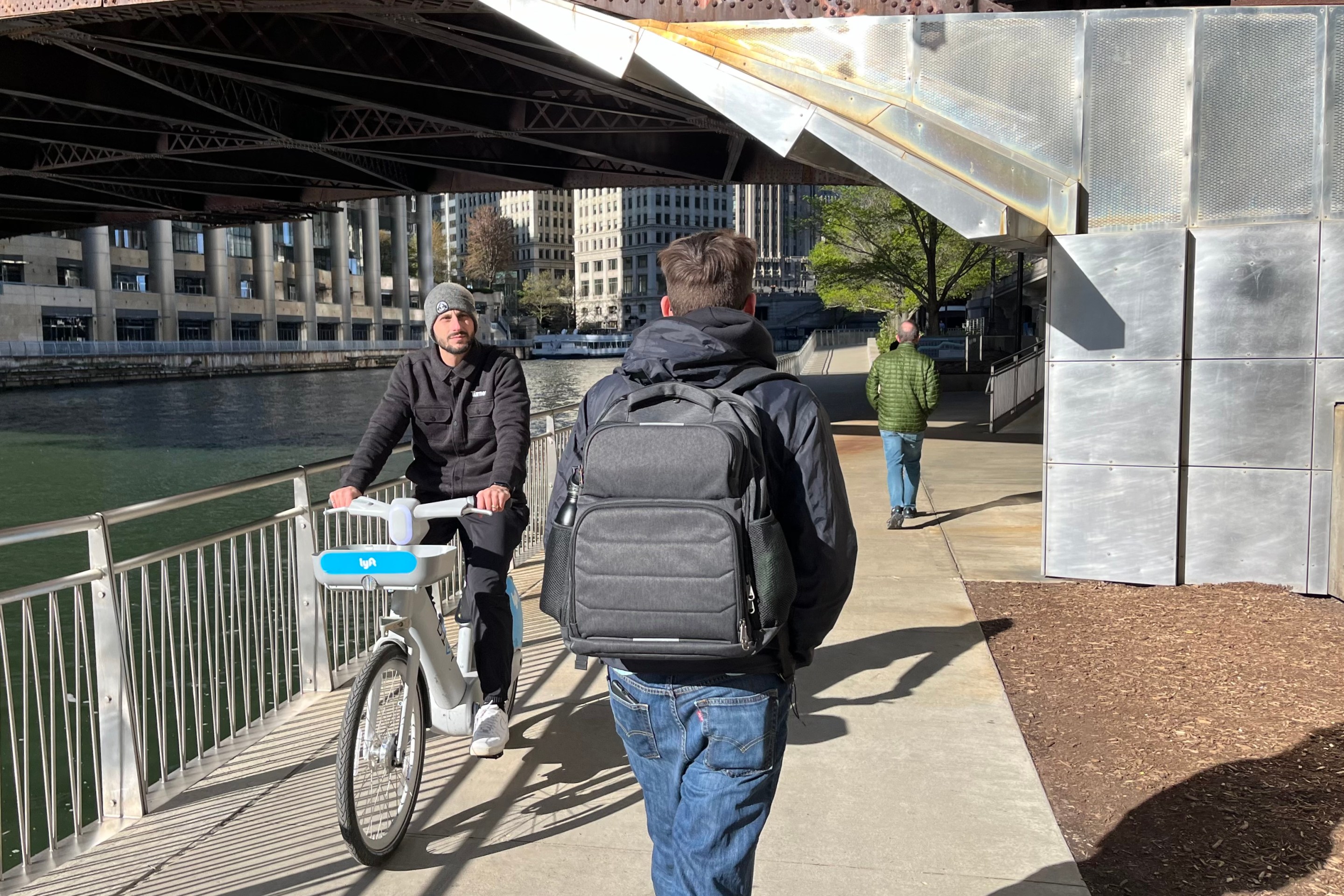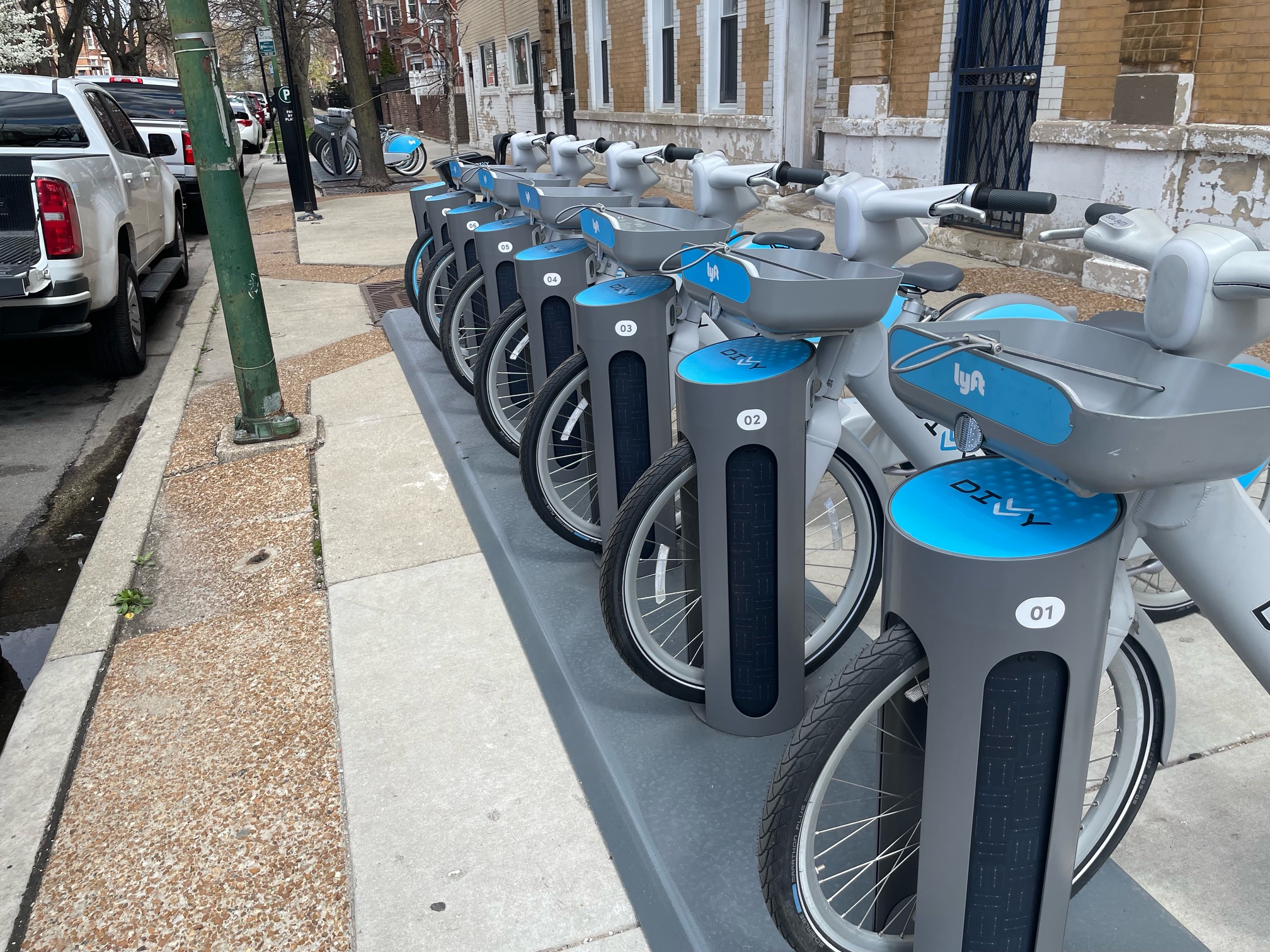Street Repairs Make It on 5th Ward PB Ballot; CTA and Bike Projects Don’t
3:00 PM CDT on May 3, 2013
Traditionally, Chicago aldermen choose to spend their discretionary “menu” funds on meat-and-potatoes infrastructure projects like street repaving, sidewalk repair, and streetlight replacement. This week, however, residents in four different wards are voting in participatory budgeting elections, helping to decide how their district’s $1.3 million in menu money will be spent. Three of the wards will have innovative walking, biking, and transit proposals on the ballot, but one of them won’t.
In Joe Moore’s 49th Ward, the Far North district that first pioneered the PB process here in 2010, options include shared-lane markings for bikes on Clark, bus stop benches, a 150-foot-long Metra platform shelter, and a pedestrian safety study for Sheridan Road. Constituents in John Arena’s 45th Ward, on the Far Northwest Side, can vote for buffered bike lanes on Milwaukee and Lawrence, bike parking corrals, and a pedestrian crossing light at the Jefferson Park Transit Center, which will also improve bus access.
James Cappleman’s 46th Ward, on the north lakefront, has several forward-thinking transportation items on the ballot: new bike lanes, a traffic-calmed “neighborhood greenway” on Leland, and pedestrian safety infrastructure like sidewalk bumpouts and countdown signals. One proposal calls for connecting a traffic island at Broadway/Sheridan/Montrose to create a new public space dubbed “SherMon Plaza.”
As I reported last month, there will be no nontraditional transportation projects on the ballot in Alderman Leslie Hairston’s 5th Ward, the only South Side district to participate. It’s not because her constituents don’t want them. During community meetings last fall to brainstorm items for the PB election, residents put forth 23 different proposals to the transportation committee, including many ideas to improve conditions for walking, biking, and transit.
They proposed new curb cuts to provide wheelchair access; realigning bus stops so that people exiting would step onto concrete, not muddy grass; new bus benches and shelters; and pedestrian safety improvements by the Hyde Park Neighborhood Club. Ideas to promote cycling included repairs to the Lakefront Trail and paths within Jackson Park; building a buffered bike lane delineated with flexible posts on 67th; and bike parking racks at Metra stations.
However, at a Valentine’s Day meeting, the transportation committee was told Hairston had designated all 23 ideas as “service requests,” which should be paid for by agencies like the Chicago Department of Transportation, the CTA and the park district. Therefore, none of these ideas would be on the PB ballot. “We don’t need to spend ward money on [those projects],” 5th Ward Chief of Staff Kimberly Webb told me last month. In my post on the subject I stated, “[Participatory budgeting] is not a truly a democratic process when all ideas for improving walking, biking, and transit are taken off the table.”
Two weeks after I sent a link to the article to Hairston’s publicist Carole Parks, she wrote to say my statement that the alderman had eliminated sustainable transportation proposals from the process was false. “Some of those projects will be on the ballot,” she said. “Kimberly Webb made clear to you the alderman committed to ensuring the other PB5-generated projects would also be implemented by the respective agency.” She directed me to the ward’s page on the PB Chicago website, which features a slideshow from one of the community expos for the process. The slideshow includes the proposals for realigning bus stops and improvements to the lakefront and Jackson Park bike paths.
I told Parks I didn’t recall Webb mentioning Hairston had committed to making sure the transportation ideas removed from consideration for the ballot would be implemented, but that I was pleased to see the path and bus stop proposals were being considered. I offered to do a follow-up post and said I was interested in talking with someone from the transportation committee.
Instead, Parks put me in touch with Roger Huff, a retired attorney who co-chairs the leadership committee for the ward’s PB process. Soon afterwards I downloaded the final ballot and was disappointed to see the only transportation-related projects that made the cut were road and sidewalk repairs and street lighting -- traditional menu items that can also be paid for by city agencies. Other projects still under consideration include murals, a community garden, fencing around a running track, security cameras, and adding lane markings and reflectors to Cornell.
Huff told me he was okay with Hairston’s decision to remove nontraditional transportation proposals from consideration for ward money and instead ask CDOT, the CTA, and the park district to fund them. “Those projects need to be brought to the people that are managing those projects in the right department,” he said. “Just because everything isn’t put on the ballot for the menu is not a problem. To me it’s a problem if the larger needs of the ward aren’t being channeled and followed through.”
He acknowledged that some participants were frustrated to see their proposals eliminated from the election. “I think we’re going through the growing pains that one would expect with something new,” he said. “You have to crawl before you can walk, walk before you can run. And so we’re working our way through it the first time and learning what to do differently the next time.”
I also tracked down Pat Wilcoxen, formerly head of circulations for the University of Chicago library system, who served on the transportation committee. “Of course it was a disappointment,” she said. Wilcoxen added that Hairston asked her and other committee members to approach the relevant agencies about implementing all of the walking, biking and transit proposals, emphasizing that the alderman has prioritized them, even though she declined to fund them.
“If we are able to follow up on these and get the majority of these projects done and report back to the people who suggested them, I expect those people will participate next year,” Wilcoxen said. “In that case it will have been a very valid decision by the alderman because it leaves menu funds for other things. If we fail, I don’t see why those people would participate again.”
Final voting takes place Saturday from 10 a.m. to 2 p.m. at Gary Comer College Prep, 7131 S. South Chicago Avenue.
In addition to editing Streetsblog Chicago, John writes about transportation and other topics for additional local publications. A Chicagoan since 1989, he enjoys exploring the city on foot, bike, bus, and 'L' train.
Stay in touch
Sign up for our free newsletter
More from Streetsblog Chicago
The de-facto ban on riverwalk biking is back. What should we do about it?
In the short term, new signage is needed to designate legal areas for cycling on the path. In the long term CDOT should build the proposed Wacker Drive protected bike lane.
Today’s Headlines for Thursday, April 25
It’s electric! New Divvy stations will be able to charge docked e-bikes, scooters when they’re connected to the power grid
The new stations are supposed to be easier to use and more environmentally friendly than old-school stations.





